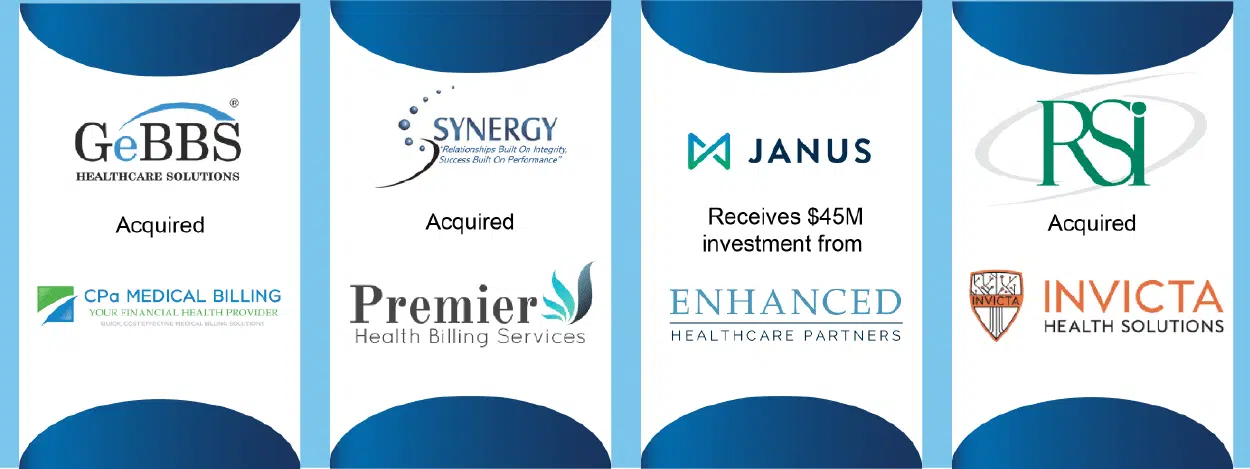Medical Debt Takes Center Stage: How Growing Patient Burden and Legislative Changes are Impacting the Revenue Cycle Management Industry
Relative to previous years, and much like nearly every other industry, the revenue cycle management (RCM) vertical faced a decrease in M&A activity, particularly in terms of deal count in Q1 2023. Nonetheless, some larger transactions (i.e., Alpine Investors investing in Medusind) drove up overall deal value.
This dilatory showing could be due, in part, to legislation at the state level taking the reins on debt enforcement. There have been a variety of bills recently introduced by state governments regarding medical debt specifically. This has become a hot button item over the last few years and shows no signs of slowing down as we head into an election cycle.
American’s have an exorbitant amount of outstanding medical debt, and the CFPB has their eyes set on figuring out solutions. As we look out on the horizon of this year—and as politicians look for their edge to stand out in a monumental election cycle—this issue may be worth monitoring. Hospitals remain in about the same or worse financial position, so revenue cycle efficiencies will continue to be an area of focus.
Expanding on the above, a 2023 report published by Kareo (a Tebra company) on the current state of affairs in the medical billing industry is really grabbing people’s attention. Namely, it is a spotlight on the growing trend of patients having to pay more out of pocket, AKA the dreaded patient balance (or self-pay). This is creating a bigger financial burden on everyone involved in the revenue cycle, especially billing companies.
Here’s the kicker: the Medical Group Management Association also conducted a survey using 2022 data, and 56% of the respondents reported an increase in time in accounts receivable due to these patient balances. As the days outstanding increase and the balances get larger, this puts an even greater financial strain on both the consumer and the service provider. It is a vicious cycle of financial struggles that is leaving everyone feeling the pinch.
Although M&A activity in the revenue cycle management vertical remains active, it has garnered less attention with the waning of the COVID-19 pandemic. Finalized deals have focused on assets that have shown resilience and growth through the pandemic by offering diversification or different end market/service offering exposure to the acquirer. An example of this was GeBBS Healthcare Solutions acquiring CPA Medical Billing, a market leader in the federally qualified health center (FQHC) vertical.
Rest assured that buyers are still actively seeking healthcare RCM acquisition opportunities, particularly within complex claims and insurance verification/denial claims management sectors. But as always, well-run companies across the healthcare RCM sectors continue to be sought after in today’s market.
Notable Transactions:
GeBBS Healthcare Solutions acquired CPA Medical Billing
Synergy IOM LLC acquired Premier Health Billing Services, LLC
Janus Healthcare receives $45M investment from Enhanced Healthcare Partners
RSI LLC acquired Invicta Health Solutions LLC



